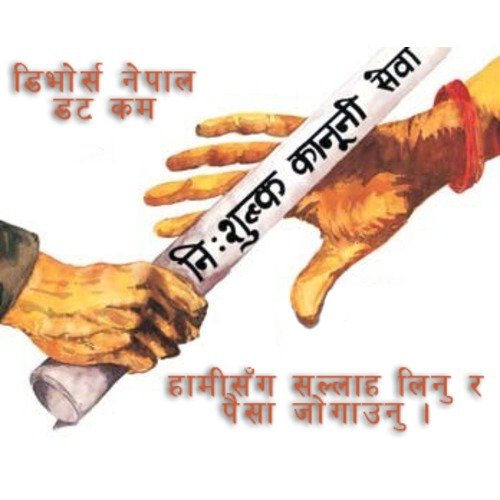Best Debt & Collection Lawyers in Kathmandu
Share your needs with us, get contacted by law firms.
Free. Takes 2 min.
List of the best lawyers in Kathmandu, Nepal
About Debt & Collection Law in Kathmandu, Nepal
Debt & Collection Law in Kathmandu, Nepal governs the legal framework for debt collection and management in the city. It provides guidelines and regulations that both debtors and creditors must follow in order to maintain fair and transparent practices.
Why You May Need a Lawyer
There are several situations where consulting a lawyer specializing in Debt & Collection Law can be beneficial:
- If you are facing difficulty in repaying your debts and need assistance with debt management.
- If you have been subjected to unlawful debt collection practices by creditors or collection agencies.
- If you are a creditor looking to recover outstanding debts through legal channels.
- If you need guidance on negotiating and drafting debt settlement agreements.
- If you are facing legal actions or lawsuits related to debt collection.
Local Laws Overview
The following key aspects of local laws are particularly relevant to Debt & Collection in Kathmandu, Nepal:
- Debt Recovery Act: The Debt Recovery Act governs the procedures and mechanisms for recovering debts. It provides guidelines on initiating legal actions, debt recovery tribunals, and the rights and responsibilities of both debtors and creditors.
- Consumer Protection Act: The Consumer Protection Act safeguards consumers from unfair debt collection practices and provides remedies for consumers facing harassment or unethical behavior by debt collectors.
- Contract Act: The Contract Act outlines the legal requirements for valid contracts and enforces the contractual obligations between debtors and creditors.
Frequently Asked Questions
Q1: What is the statute of limitations for debt collection in Kathmandu, Nepal?
A1: The statute of limitations for debt collection varies depending on the type of debt. Generally, it ranges from 1 to 6 years. However, it is advisable to consult a lawyer to determine the specific statute of limitations applicable to your situation.
Q2: Can a debt collector garnish my wages in Kathmandu?
A2: Yes, under certain circumstances, a debt collector can seek a court order to garnish a portion of your wages to satisfy a debt. However, there are legal limits on the amount they can garnish, and certain types of income are exempt from garnishment. Seek legal advice to understand your rights and options.
Q3: What are my rights as a debtor in Kathmandu, Nepal?
A3: As a debtor, you have rights protected by law, including the right to be treated respectfully and fairly, the right to dispute the debt, and the right to receive accurate and detailed information about your debts. It is essential to be aware of your rights and consult a lawyer if you believe they are being violated.
Q4: Can I negotiate a debt settlement with my creditor?
A4: Yes, it is possible to negotiate a debt settlement with your creditor. However, it requires careful consideration and strategy. Consulting a lawyer with expertise in debt settlement can greatly assist you in reaching a favorable agreement while protecting your rights and interests.
Q5: What legal actions can creditors take for debt recovery in Kathmandu?
A5: Creditors can initiate legal actions such as filing a lawsuit, seeking a court judgment against the debtor, obtaining a garnishment order, or placing a lien on the debtor's property. The specific legal actions available depend on the circumstances of the debt and the applicable laws. It is recommended to consult a lawyer for guidance tailored to your situation.
Additional Resources
For more information and assistance regarding Debt & Collection Law in Kathmandu, Nepal, you may find the following resources helpful:
- Kathmandu District Court: Provides information on court procedures and legal aid.
- Nepal Bar Association: Offers a directory of lawyers specializing in Debt & Collection Law.
- Nepal Rastra Bank: The central bank of Nepal can provide guidance on banking and financial regulations related to debt collection.
Next Steps
If you require legal assistance in Debt & Collection Law in Kathmandu, Nepal, follow these steps:
- Identify the specific issue or concern you have related to debt and collection.
- Research and compile relevant documents and information supporting your case.
- Contact a lawyer specializing in Debt & Collection Law to schedule a consultation.
- During the consultation, discuss your situation, provide necessary documents, and seek guidance on the best course of action.
- If legal representation is necessary, engage the lawyer to represent you and follow their advice throughout the process.
- Maintain open communication with your lawyer and provide any additional information or documentation required.
- Fulfill your obligations as advised by your lawyer and participate actively in the legal process.
Lawzana helps you find the best lawyers and law firms in Kathmandu through a curated and pre-screened list of qualified legal professionals. Our platform offers rankings and detailed profiles of attorneys and law firms, allowing you to compare based on practice areas, including Debt & Collection, experience, and client feedback.
Each profile includes a description of the firm's areas of practice, client reviews, team members and partners, year of establishment, spoken languages, office locations, contact information, social media presence, and any published articles or resources. Most firms on our platform speak English and are experienced in both local and international legal matters.
Get a quote from top-rated law firms in Kathmandu, Nepal — quickly, securely, and without unnecessary hassle.
Disclaimer:
The information provided on this page is for general informational purposes only and does not constitute legal advice. While we strive to ensure the accuracy and relevance of the content, legal information may change over time, and interpretations of the law can vary. You should always consult with a qualified legal professional for advice specific to your situation.
We disclaim all liability for actions taken or not taken based on the content of this page. If you believe any information is incorrect or outdated, please contact us, and we will review and update it where appropriate.













